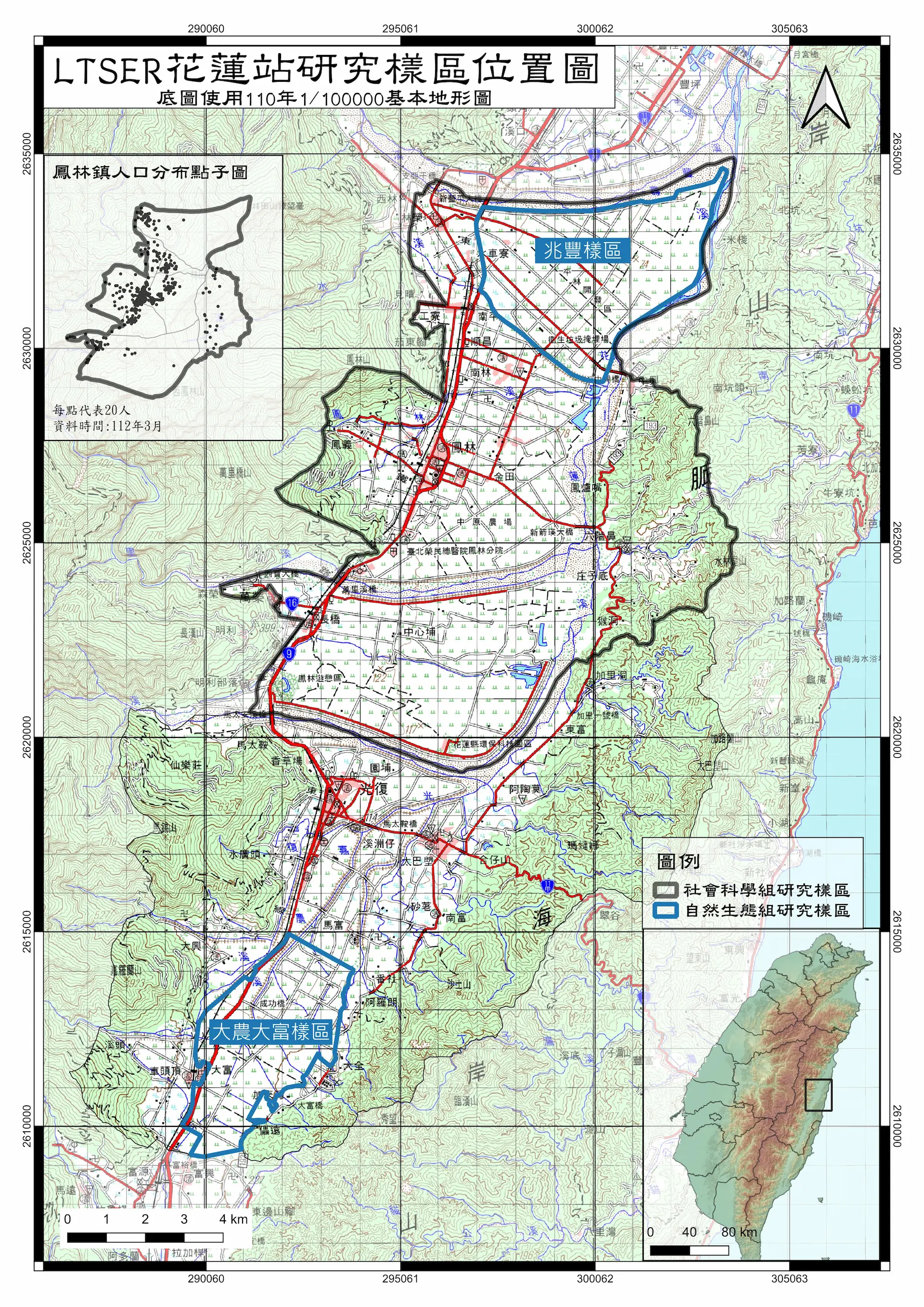About
The concept of a Social-ecological system considers that the ecosystem and social system are multiple systems that interact with each other and evolve through time. Long periods of interactions among subsystems create the appearance and characteristics of the social-ecological systems, which continue to evolve constantly. Understanding the basic characteristics, interaction, and alteration between ecosystem and social system is vital to constructing the social-ecological system. After long periods of social-ecological changes and government policies, rural socio-ecological systems face several challenges such as population outflow, aging, abandonment and release of agricultural land, local industrial frustration, and landscape changes. In addition, the ongoing policies “2050 zero carbon emission” and green energy due to global warming and climate change potentially cause an impact on the social-ecological system. Taiwan, however, lacks scientific research on the social-ecological system.
Our study sites were located in the Eastern side of Taiwan including the Fenling District and Guangfu Township. Fenling Township was selected as the rural social-ecological system study site whereas Guangfu Township, the artificial forest study site, was selected as a comparison (Figure 1). Fenling Township is one of the typical social-ecological systems in Taiwan. Agriculture is the major type of land use. Same as other rural areas in Taiwan, the Fenling Township faces a change in land use and economic structure. Especially the change of large areas of artificial forest into ground-mounted PV (Photovoltaic system) systems. Currently, the PV systems have already been constructed 71 hectares. The upcoming reserved PV systems construction site is estimated over 1,200 hectares, which is the main monitoring factor in this study site. The designated PV systems construction sites are often close to the local village, farmland, and artificial forest. With such a drastic change in land use whether impacts the local microclimate, fauna, flora, or resident welfare requires careful assessment. Therefore, this research platform aims to monitor the change in land use before, in the middle, and after the PV systems were constructed on landscape scale. We aim to solve the local social environmental issues based on science-based data. Moreover, to acts as a scientific foundation for public policy planning and evidence-based governance.

- McGinnis, M. D. and Ostrom, E. (2014). Social-ecological system framework: Initial changes and continuing challenges. Ecology and Society, 19(2): 30.
- Walker, B., Holling, C. S., Carpenter, S. R. and Kinzig, A. (2004). Resilience, Adaptability and Transformability in Social–ecological Systems. Ecology and Society, 9(2):5.

